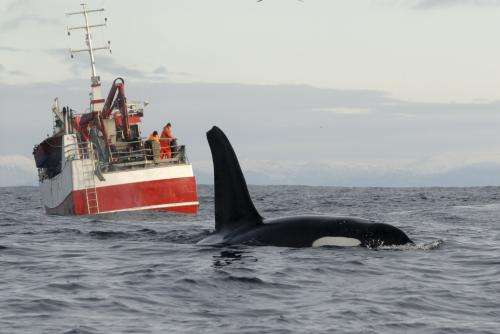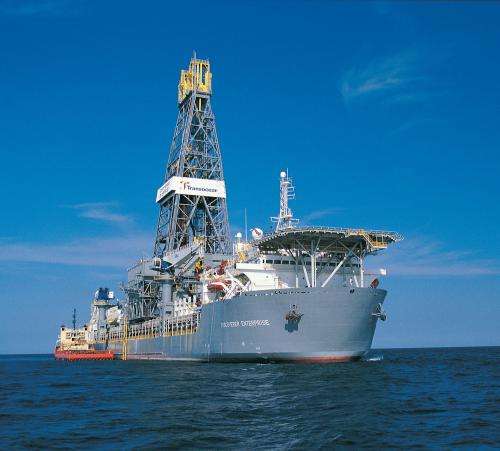Killer whale / Orca (Orcinus orca) at surface in front of a herring fishing boat, Kristiansund, Nordmore, Norway, February 2009.Credit: Wild Wonders of Europe /Nils Aukan / WWF
A new report from WWF details the problems increasingly noisy oceans are creating for whales. Those problems include finding mates, finding food, and potentially driving whales away from prime habitat.
"We're finding evidence of increasing levels of noise in all of our oceans" say Aimee Leslie, Global Cetacean and Marine Turtle Manager for WWF. "Large ship traffic, offshore oil exploration and development, and military exercises are all contributing to a barrage of noise buffeting ocean life. This cacophony is hard on cetaceans that use sound for essential communication. We are particularly concerned about the impacts of sound in previously quiet oceans, such as the Arctic."
The report finds there are methods of both quietening the oceans, and reducing the impacts of noise on whales. Key recommendations include:
- Immediate action to reduce ocean noise at its source
- Further research on technologies to reduce noise created by oil exploration, commercial shipping, and pile driving
- Making parts of the ocean important for whales off limits to big noise producing activities, especially during sensitive times (such as calving)
- Swift and effective implementation and regulation based on coming IMO guidelines on reducing ocean noise from shipping.
The Transocean drillship, Discoverer Enterprise, prepares to conduct a recovery operation for BP, following the Deepwater Horizon oil spill in the Gulf of Mexico; using a specially built dome at the sea floor in Robert, Louisiana on Monday, 03 May 2010. Credit: United States Coast Guard/Transocean
"The key is taking immediate action to reduce noise where we can," says Leslie. "We can wait for better technologies and more research, but we already have enough information to know ocean noise is a problem, and we already have some tools to start fixing it."
More information: Report online: awsassets.panda.org/downloads/ … noise_report_web.pdf
Provided by WWF - Conservation news























